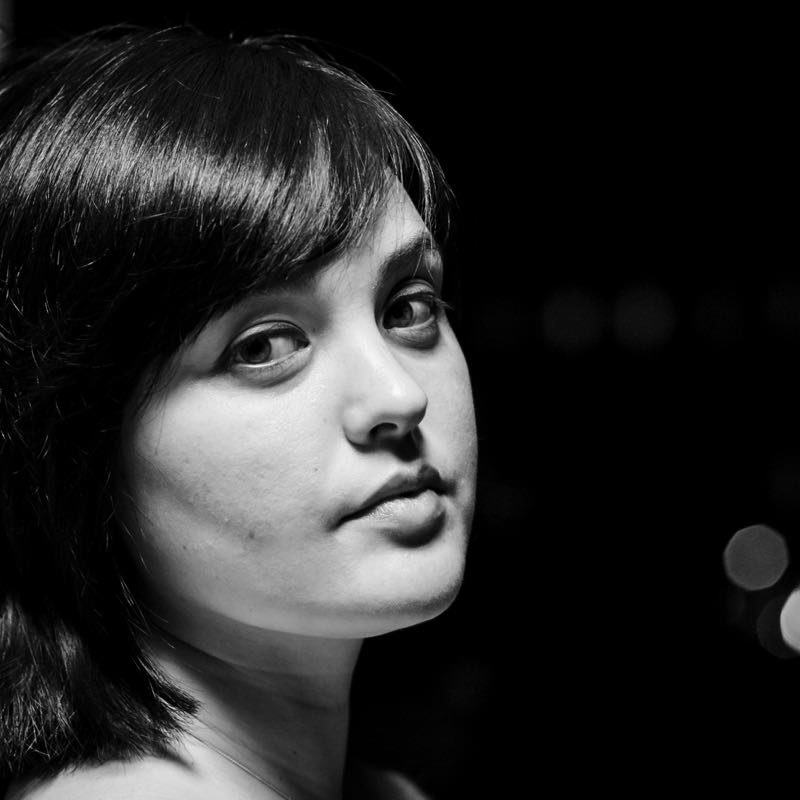Leah Nanako Winkler on God Said This, Kentucky, and More
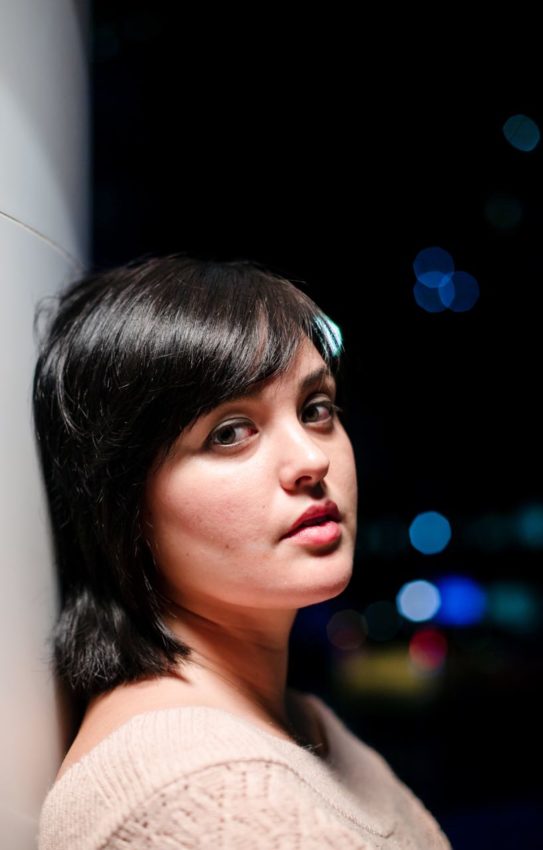
January 19th, 2019
Two years ago, playwright Leah Nanako Winkler’s play Kentucky opened in New York. It was one of the first times that she’d had a major production of her own work. Now, Leah is back with a new play, God Said This, which is just beginning performances at Primary Stages. Set seven years apart, both Kentucky and God Said This explore the relationships and dynamics of a mixed race family in Kentucky. When her mother Masako is diagnosed with a rare form of cancer, New York City marketing executive Hiro returns home to Kentucky for the first time in seven years. Leah recently won the 2018 Yale Drama Series Prize for God Said This and is also the recipient of a 2018 Audible emerging playwrights commission. I recently spoke with Leah about her growth as a writer, what it was like to revisit the world of Kentucky for God Said This, and more.
When did you first become interested in writing, and specifically, in writing plays?
Well, I went to Japanese school, and I was pretty underestimated because I’m half. They told me that I didn’t have to learn Kanji, or write in Japanese, and I didn’t have to really learn about Japanese history or anything like that. In second grade, we had to write these personal essays, and apparently the teacher thought mine was very good. My mom read it and she was like, “Leah, this is really good.” That was the first time that I felt validated, that I was good at something. Ever since then, I’ve told everyone I wanted to be a writer. I’d moved to America mid-childhood, and this was in Japanese school, but I went to American school as well. I think that theatre kept me out of a lot of trouble. When I found theatre, it translated into, “Maybe I’ll direct, maybe I’ll write.” And then I just started writing little plays. I started because you have to do monologues for drama class, so I would be writing [out] Marsha Norman monologues, and just repeating it out loud to myself to see how it sounded, and recording them on a tape recorder, just to learn cadence and different ways of how words sounded off the page. Then, I would start writing my own monologues. I was also very much into Manga. I read Sailor Moon, Baby Love, all of that. I still read it. It’s pretty normal for Japanese kids to make little comics of their own. And I would do that, so I think probably I got a little bit of my sense of dialogue through comics or through Manga as well. So, it’s a trilogy of all those things. It’s just always been the only thing that I thought that I was good at that I really found my identity in.
Growing up, were you exposed to traditional Japanese theatre, like Noh and Kabuki, as well as American theatre?
Not really. Mainstream Japanese theatre is basically a lot of American theatre. Right now, they’re doing a lot of Broadway shows. I did see Noh and Kabuki when I visited Japan when I was a little older, but I didn’t grow up seeing Noh and Kabuki. My parents aren’t theatre people. I think it might be a class thing; a lot of people will be like, “Oh yeah, my parents were taking me to Broadway shows.” They’re really expensive, and I didn’t even go to New York until I was a senior [in high school]. My first play that I saw was in elementary school. My English teacher put on this annual one-woman show of The Tell-Tale Heart. We had to sign waivers because she was going to bring a knife into the classroom. I remember the knife, and her performance. She would get up in your face. I think that was my first theatre experience, and it was in class. I thought it was the coolest thing ever. I think all the theatre that I saw was just high school plays, and maybe a couple of things at the community theatre. There was a Shakespeare in the Park in Lexington, Kentucky. That was sort of the Holy Grail; that was the pinnacle of my dream at the time.
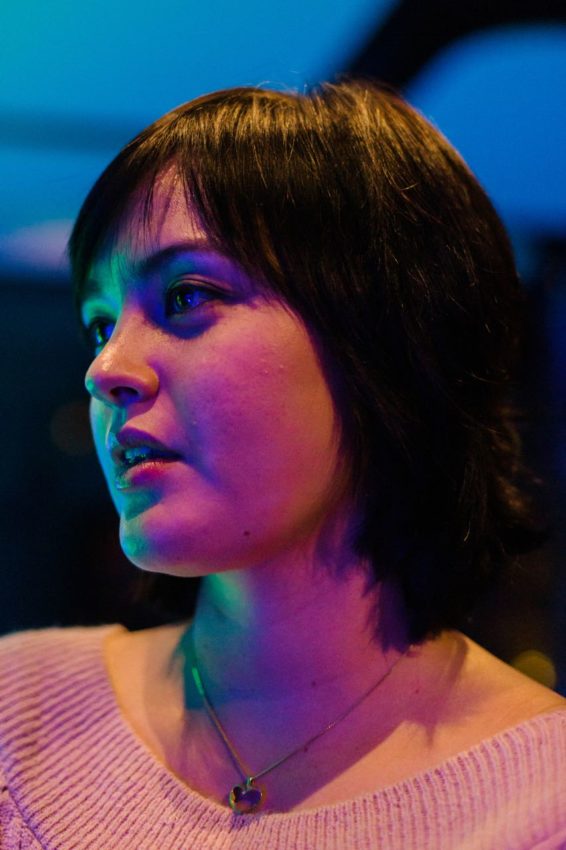
You’ve mentioned a few elementary school teachers who influenced your development as a playwright. Did you have any other theatrical mentors, perhaps as a teenager in Kentucky or as a young adult newly arrived in New York?
We didn’t have an official theatre program. This teacher, Lisa Osterman, basically donated her time. It was essentially a labor of love; she was teaching all of us really high-level Brecht when we were 14 years old. I didn’t even realize the education that I was getting. It was just really fun. I literally moved to New York on a Greyhound bus with $4,000 that I had gotten from donating my eggs. I didn’t really know anyone, but I met my friend Theodore Nicholas, who’s another playwright. He’s a New York native, and he was attending Purchase at the time. He gave me a lot of knowledge about who to know, and what downtown theatre was. Young Jean Lee was about to win her first Obie. He was like, “You should email Young Jean Lee.” We would look up longingly at the Ontological-Hysteric Theater, which used to be Richard Foreman’s theatre, then got rebranded as the Incubator Arts, and now is totally defunct. Young Jean had done a lot of shows there, so I emailed her and asked her if she needed any interns. She was like, “Sure.” After that I became her assistant. What I learned from her was who’s doing the exciting work, and how to self-produce. She wasn’t like “Here are the ropes,” or anything like that, but I learned a lot just by interacting with people around her and watching her function. That’s how I got immersed into the community. Of course I’ve had many people be super kind to me throughout the years. A lot of people have helped me out and developed my work. But if I hadn’t been her assistant, I’m not really sure how I would have even found a way in.
Your experience with Young Jean Lee touches on a theme that’s actually come up in a lot of my recent Interval conversations. It seems so important to give women opportunities throughout the pipeline—not just at the top—so that they can really learn and grow.
Yeah. I mean, it wasn’t a job that I applied for or anything. I just roguely emailed her. I think you have to let go of a sense of entitlement when you’re interning or assisting because you’re lending your services and your help, but you’re also learning so much. And it wasn’t my only job.
What were some of the other jobs that you had when you first started out?
I’ve had a million jobs. I worked at Starbucks. Then, I worked at Bath and Body Works. That one was hard because you had to wear heels. I don’t know why. I hope they don’t still do that. And then, I was a product specialist for Nissan for a year. I was on a team of a bunch of beauty pageant winners, who travelled the country to different auto shows. I guess we were supposed to be experts on the cars, but we were wearing go-go boots and Star Trek dresses, and every hour I had to get up on a rotating platform, and give a bilingual presentation in Japanese. I could talk about my odd jobs for a very long time. I worked admin. I worked with the Asian American Arts Alliance. I was a personal assistant for a very long time to really a wonderful woman on the Upper East Side.
How did you balance these day jobs with your writing?
I didn’t sleep. I didn’t rest. It was really hard. I also had my own theatre company from 2006 to 2012, so I just worked like a maniac. I’m still working like a maniac. You have to be really ambitious, and you have to work really fucking hard to make it work. For me, writing has always been the number one priority. I love writing. I feel lucky because I love the act of writing a lot. It’s what makes me happy. It’s what I dedicated my life to, and what I will continue to dedicate my life to. But it’s work. You can’t be lazy. Laziness will catch up to you in this.
And you write in quite a few different mediums. You are working on something for Hulu now, and for Audible. How do you approach writing for theatre compared to writing for a streaming service or audio plays?
I was one of the first commissioned recipients of the Audible Emerging Writers Fund; it’s just like writing a play but thinking about sound as stage directions. In terms of TV writing, it’s just a totally different muscle. It’s really cool. It has wider access, but I think that you just have to work really hard. But I’m a playwright first. I just kind of always was. I wasn’t really trained. I did go to Brooklyn College for my MFA. I just graduated two years ago. But it took me a little bit longer than usual to finish, because a lot of people who go through that program have already been working in theatre for a long time. It’s not the traditional program where you’re in this incubator, and you’re waiting to go out into the world. I had maybe six shows in New York already, and was already working, so you could do it while you were working.
What was your most valuable takeaway from doing that MFA program?
[Brooklyn College playwriting professors] Mac [Wellman] and Erin [Courtney] are great because they don’t tell you to write in any sort of style. It’s really about sharing work. It’s like being in a really cool writers group. But I’d say that all of the very important lessons I learned about being a theatre artist and working playwright, I just learned by being one and making my own opportunities for a long time, and basically failing in front of audiences.
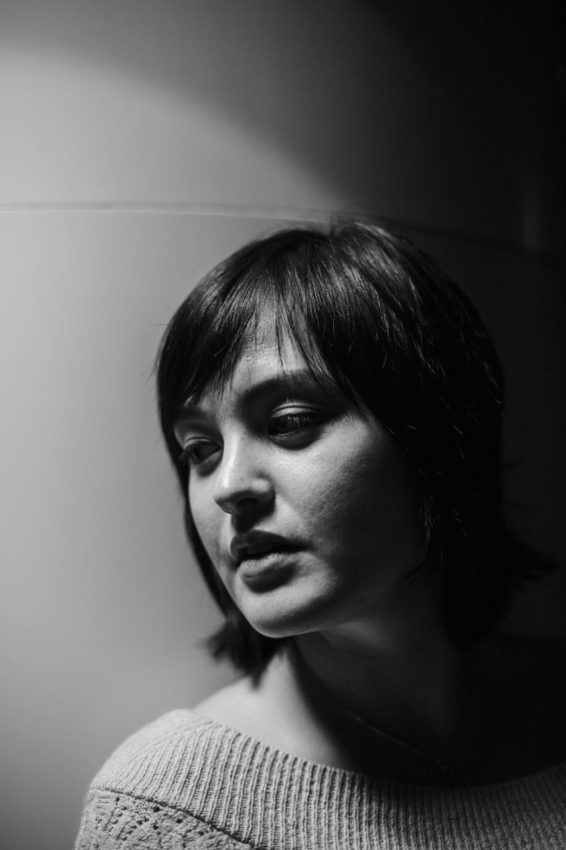
Let’s move on to talking about the play that you’re working on right now, God Said This. Would you describe it as being in conversation with your previous play Kentucky?
Well, God Said This is definitely a stand-alone play. You can watch God Said This without having read any of my other work, and still have a full story. But, if you had read or seen Kentucky, you would notice that God Said This takes place seven years after the events of Kentucky unfolded, and three of the characters in Kentucky are back for this play. But the main character is not the protagonist of Kentucky, which was Hiro. The main characters [in God Said This] are actually the parents. Also, Kentucky is a sixteen person cast, and it had a lot of songs. It had a talking cat in it. It’s very fun, and lively, and a comedy. God Said This is a drama, and it’s a cast of five. It veers towards the naturalistic, although you can still tell it’s me. So, if you happen to have read Kentucky, there are definitely some Easter eggs. You can track Hiro, Sophie, Masako, and James through that story, but there’s a new character too.
What was it like to revisit these four characters you’d known so well, but in such a totally different context?
I hadn’t planned on doing this actually. My mom got sick last year. She had this extremely rare and aggressive form of cancer called carcinosarcoma. When my mom was getting treatment, I went back to Kentucky, once a month for six months, to watch over her while she was doing chemo. It’s not as dramatic as it sounds. The hospital, the Markey Cancer Center where I wrote the play, has a couch and [my] mom was asleep. I started to [write] in order to cope with the situation, because I didn’t know what her fate would be. You never know with cancer; you read about people getting cured, and then you read about people going downhill really fast. And chemo sucks. In order to cope with it, I just started to write. I started to imagine what would happen to this family in Kentucky if the matriarch of that family, Masako, had gotten the same cancer. I started to write and I would take pages back to my writer’s group [Primary Stages’ Dorothy Strelsin New American Writers Group] in New York when I would come back. They were the first ones who told me, “This is a play.” So then I would go back [to Kentucky] and just keep working on the play. And then I did an end of year reading with them. It was really important to me that it be a stand-alone play, but I wasn’t sure [it was]. Once I had that reading I was like, “Oh yeah. You can not know anything [about Kentucky] and see it.” But I do think it is cool if you know both worlds too.
Did you learn new things about Hiro and Sophie from exploring this new facet of their world?
Yeah. I mean, Kentucky went up really recently, in 2016, and this takes place seven years later from the characters’ lives, but only two years later from my life. So it was cool to imagine what they would be doing. I think that Sophie’s optimism is being tested in this play a lot. In the first play, the whole future is ahead of her. She’s extremely religious, and [thinks] God will fix everything, but what happens when that gets tested? It’s really cool to think about that, and see what a different actor would bring to the role as well. For Hiro, it was really fun for me to think about what she’s doing seven later. Kentucky is her journey, deciding if she wants to ever be around her family again, and how estrangement can be healthy, and you have to do what you need to do and create a world for yourself. But then, boom, she’s back, seven years later. She’s on the rise; she has this job with a $60,000 a year salary and she’s bragging about it all the time. It was cool to work with Satomi Blair who’s playing Hiro now [and who played Hiro in Kentucky]. She did work in marketing, so a lot of her is in the character. It was cool working with the same actors, and thinking about different nuances. There’s also some setup that I did in the first play that comes back in God Said This. At the end of Kentucky, you find out that James, the father, has cirrhosis. And at the beginning of God Said This, you learn that James has had cirrhosis and he’s healed. Meanwhile, this super good mom has cancer, so it’s just the give and take and unfairness of illness, and how God is indiscriminate and death is indiscriminate.
God, and religion in general, is clearly a very important component to both Kentucky and God Said This. Do you think of yourself as being a religious or spiritual person?
I’m very spiritual. Everyone just assumes that I’m Hiro, and that I’m an atheist. A really big difference between me and Hiro is that I’ve always believed in God. I’m not a Christian, but I think that there’s something there. I wasn’t raised on any sort of religion actually. Being tied to Japan, I was exposed to Shintoism a lot, and I love the rituals. I think that’s why I do believe in God. In this day and age, I think there’s a tendency to have this polarized view of people—the religious rural person and the atheist city person. My sister is a born-again Christian, which I think is great for her, because I see the positive impact in her life. Although, the sister character Sophie is not my sister at all. My sister is this plus-size Instagram model, and she lives near Detroit. My sister has really shown me a different side of what born-again Christians can look like. I think it’s boring when religious people are portrayed as dumb in any art form. I just think it’s trite and tired. I also think that for New York audiences, I wanted to show a little bit of nuance when it comes to religious people. It was important for me, just as it was important to show that Kentucky doesn’t necessarily mean racist white guys or cowboys. There’s diversity in red states. The South isn’t what you think it is.
Unlike Kentucky, God Said This was written after the 2016 election. Have you noticed a different type of audience response, in terms of themes like the diversity in red states? Do you find yourself having a different approach or perspective?
Not really. I think for me, it’s just always been a part of my life. It’s always been how I write. When you’re not white, or not only white—I’m half white, I’m mixed—you don’t consciously try to be diverse. It’s just your world, the world that you’re around.
In previous interviews, you’ve spoken about the importance of having characters of mixed race, or characters of color, who are not solely focused on that part of their identity.
I do think that sometimes white writers will arbitrarily place people of color in obvious white roles. I think that whiteness isn’t seen as an identity, but it is. I wrote a whole other play about satirizing whiteness, and whiteness is also a stereotype, so I think it’s important to be nuanced. It’s always great when actors of color get roles, no matter what, but it’s important to be nuanced in your writing. I do think that placing actors of color in universal experiences is a political act without being didactic. It’s a really good way in. Also, when I have plays that deal with race and class that are a little bit more in your face, I always try to be funny about it, because if I want to hear somebody preach at me, I’ll just turn on CNN. So the story is important, the writing’s really important.
I’d love to hear more about your thoughts on the relationship that theatre can have to politics. For instance, you successfully protested a production of the Mikado that was going to be done in yellowface. How do you see the role of theatre in a political context?
I think that if your show is racist, then people will say something about it. The Mikado situation was interesting to me because people were like, “Wow, you’re so outspoken,” but it’s crazy not to say something in that circumstance. It’s not something that I wanted to do. If you see a production in yellowface, it’s crazy not to say something. I think in terms of the role of theatre and protesting shows, it’s an inadvertent political act. Any time you’re dealing with under-representation, and can show that representation, it becomes a political act. I hate performative activism more than anything actually, so I think if by telling your truth, or the truth around you, that you’re being political, then you are marginalized.
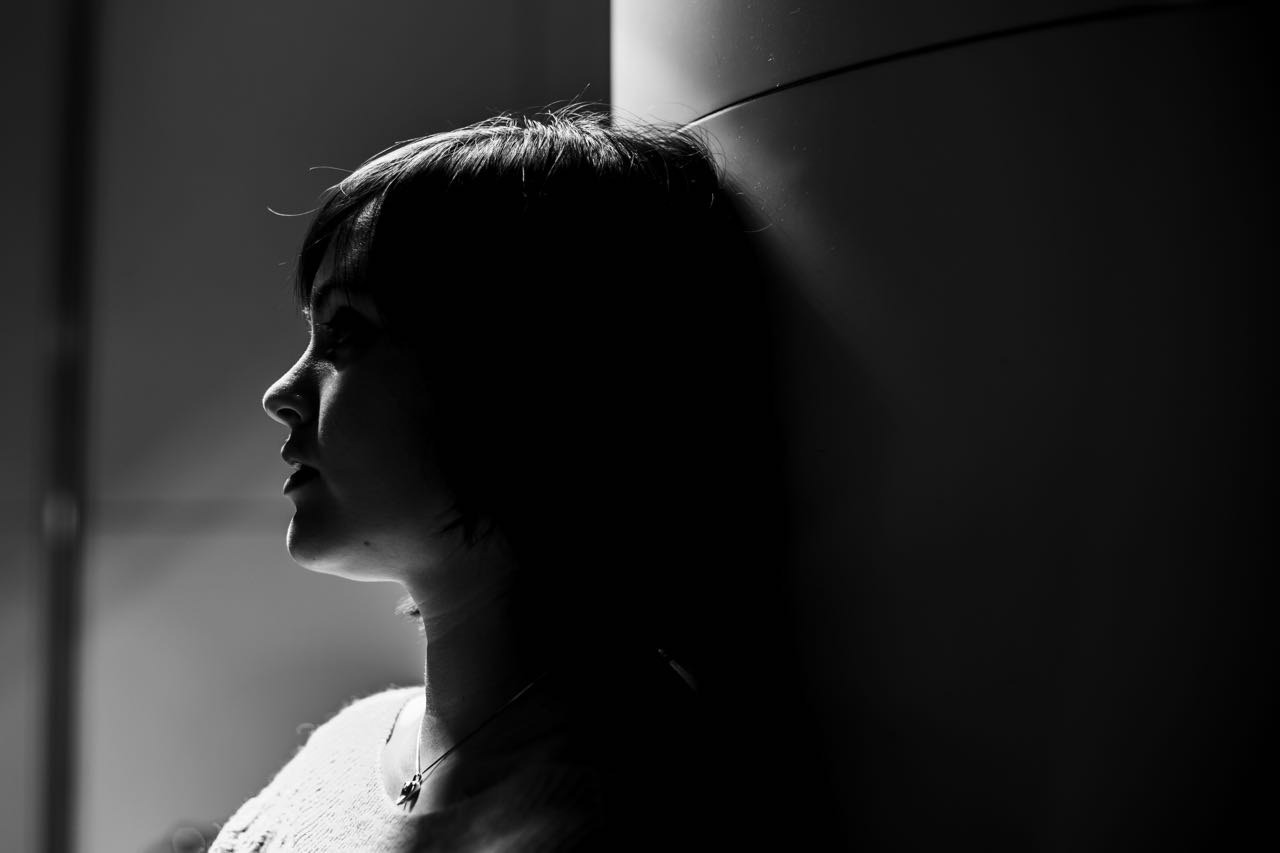
Right now you’re gearing up for previews for God Said This at Primary Stages. Do you know what you’ll be working on next?
Yeah, I have a play called Hot Asian Doctor Husband coming out in Minneapolis in the summer. I’m also going to be working on my play Diversity Awareness Picnic in San Diego in February. My play Two Mile Hollow is continuing to be produced around the country, which is great. The next production is in Arizona, then it goes to Texas. And I’m continuing to work on my play with Audible, which is called Nevada Tan. So, I have a lot in the pipeline.
You’re now at a point in your career where your plays are getting produced all across the country. Do you have any words of wisdom to share with young women who want to come to New York and pursue careers as writers?
It’s difficult to give advice to people who aren’t in the same class demographic as you. If you have your parents’ money, and you can start a theatre company, and not pay rent, do that. But the people who can’t do that, just get to know everyone. Do your research. I think the most valuable thing for me was when I first got here I was just figuring out who my favorite playwrights working in the city were, and looking at their careers. Honestly, getting to know them or getting to see their work. This is a unique city in the sense that you can meet all of your theatre heroes, unless they’re sadly gone. I thought it was the coolest thing that I saw this awesome Asian-American artist [Young Jean Lee] win this major prize, and then I could email her, and we could meet up for coffee. So take advantage of that, because there are resources that you can give yourself. Honestly, just work your ass off, and don’t wait for opportunities to be handed to you.

